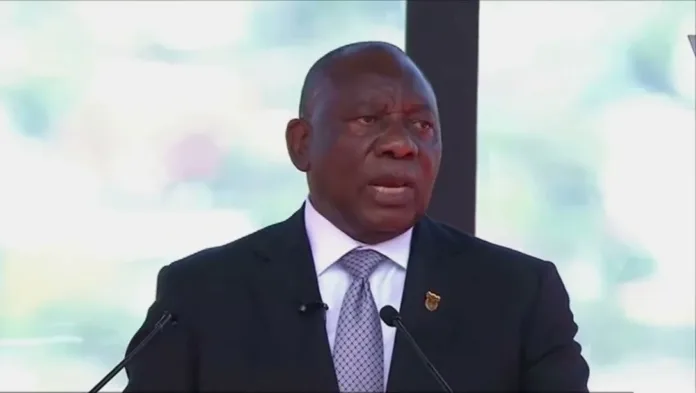President Cyril Ramaphosa’s new cabinet choices, influenced by a coalition government, spark debate over political representation and power dynamics
President Cyril Ramaphosa, freshly inaugurated by Chief Justice Raymond Zondo at the Union Buildings, faces the challenge of forming a new Cabinet amidst South Africa’s political shifts. Following the African National Congress (ANC)’s historical low in the recent elections, where they secured only 40% of the vote, Ramaphosa now leads a government of national unity. This coalition includes the Democratic Alliance (DA), the Inkatha Freedom Party (IFP), and the Patriotic Alliance.
ANC Chief Whip Mdumiseni Ntuli emphasized that Ramaphosa has the sole authority to appoint ministers, a decision not bound by proportional representation of coalition parties. This statement suggests that Ramaphosa may appoint more IFP members than DA representatives, despite the latter being a major coalition partner. Ntuli reassured that these appointments aim to stabilize and succeed the coalition government, respecting constitutional prerogatives.
Speculation surrounds the potential appointments, with DA leader John Steenhuisen hinting at his party’s desire to contribute significantly, though it’s too early to fixate on specific roles, including the deputy presidency. While ANC’s Paul Mashatile is a likely candidate for deputy president, Ramaphosa’s choices remain under scrutiny as he balances coalition dynamics with national interests.
Analysis:
- Political: Ramaphosa’s appointment decisions will significantly impact the balance of power within the coalition. By potentially favouring the IFP over the DA, he might secure more stable support but risk alienating a key partner. This manoeuvre could strengthen the ANC’s control while maintaining coalition unity.
- Social: The appointments reflect broader societal debates on governance and representation. Ramaphosa’s choices will signal his commitment to addressing public concerns about corruption and ineffective administration, key issues that influenced the ANC’s electoral performance.
- Racial: South Africa’s diverse political landscape demands careful consideration of racial representation in the Cabinet. Ramaphosa must ensure that his appointments reflect the country’s demographic makeup, promoting inclusivity and equity in governance.
- Gender: Gender representation in the new Cabinet will be closely watched. Ramaphosa’s decisions can advance or hinder gender equality in South African politics, influencing public perception and the broader agenda of women’s rights and empowerment.
Economical: Economic policies and leadership are crucial as South Africa grapples with high unemployment, low growth, and significant debt. The appointed ministers’ economic strategies will be vital in addressing these challenges and restoring public trust in the government’s ability to manage the economy effectively
